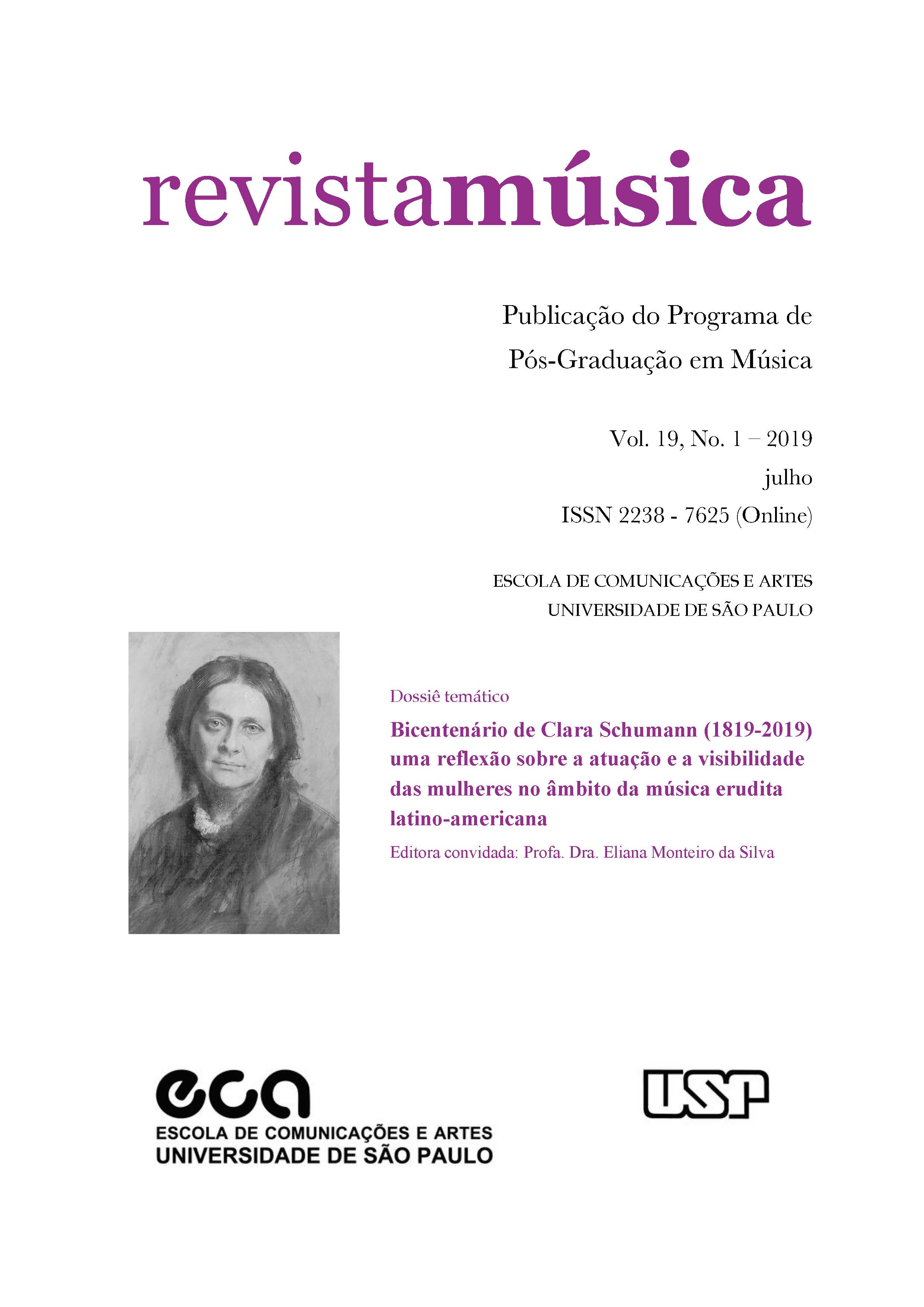Economy of Markings
The Relationship Between Composer and Performer Through The French Preludes for Harpsichord of The XVII and XVIII Centuries
DOI:
https://doi.org/10.11606/rm.v19i1.154136Keywords:
Economy of Markings, Harpsichord Writing, Improvisation, Composer-Performer Relationship, French PreludesAbstract
The purpose of this article is to discuss, having as a starting point Bruce Haynes’ The End of Early Music (2007), the relationship between composer and performer, analyzing how the role of the composer-performer unfolded in two different roles since the rise of Romanticism ideology, in the XIX century. This separation persists today and has many consequences, like the atrophy of improvisation and spontaneous creation in Western concert music. Through the improvised styles of the French harpsichord repertory from the XVII and XVIII centuries, mainly through the French preludes, the economy notation markings will be discussed as an alternative form of reintegrating the composer and performer roles, reestablishing the collaboration, orality, improvisation and spontaneous creation space in the Western concert music scene.
Downloads
Downloads
Published
Issue
Section
License
Copyright (c) 2019 Pedro Ribeiro Cardoso

This work is licensed under a Creative Commons Attribution-NonCommercial-ShareAlike 4.0 International License.
Autores que publicam nesta revista concordam com os seguintes termos:
- Autores mantém os direitos autorais e concedem à revista o direito de primeira publicação, com o trabalho simultaneamente licenciado sob a CC Attribution-NonCommercial-ShareAlike 4.0 que permite o compartilhamento do trabalho com reconhecimento da autoria e publicação inicial nesta revista.
- Autores têm autorização para assumir contratos adicionais separadamente, para distribuição não-exclusiva da versão do trabalho publicada nesta revista (ex.: publicar em repositório institucional ou como capítulo de livro), com reconhecimento de autoria e publicação inicial nesta revista.
- Autores têm permissão e são estimulados a publicar e distribuir seu trabalho online (ex.: em repositórios institucionais ou na sua página pessoal) a qualquer ponto antes ou durante o processo editorial, já que isso pode gerar alterações produtivas, bem como aumentar o impacto e a citação do trabalho publicado (Veja O Efeito do Acesso Livre).


